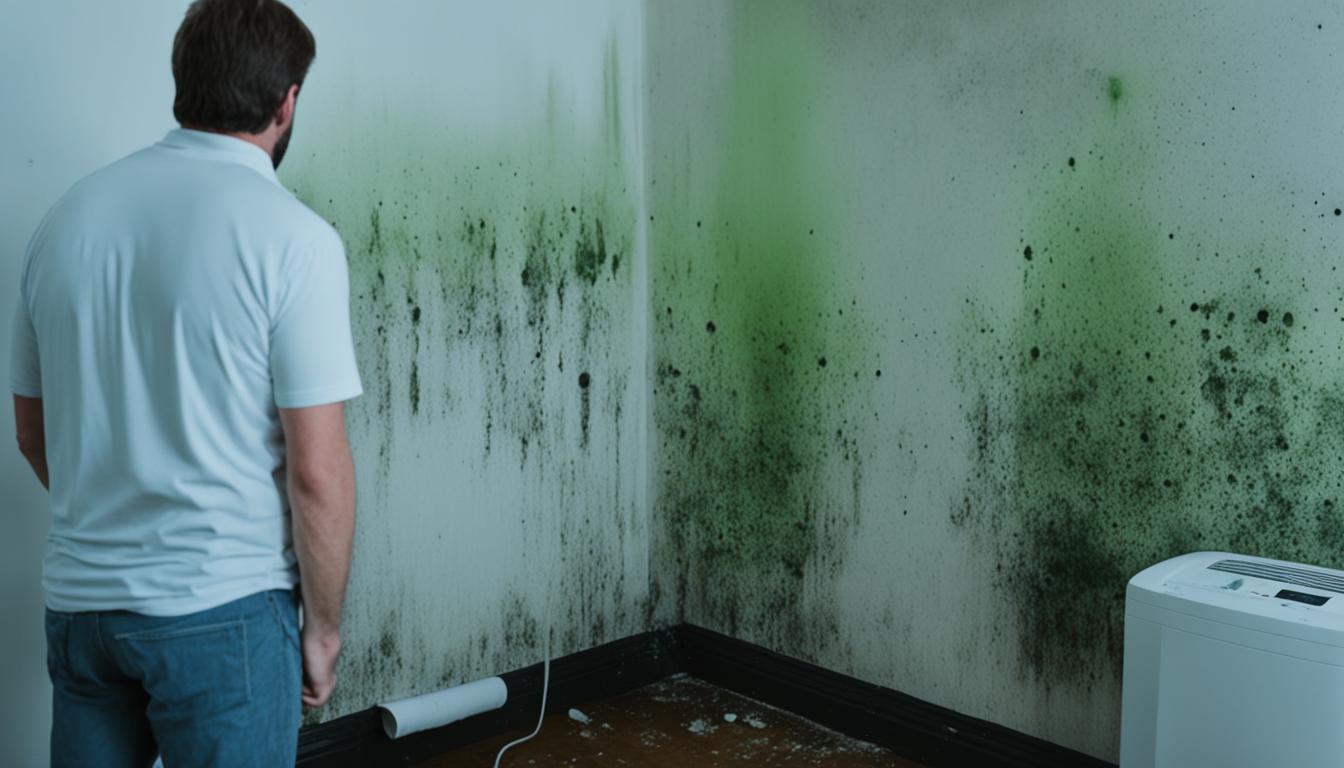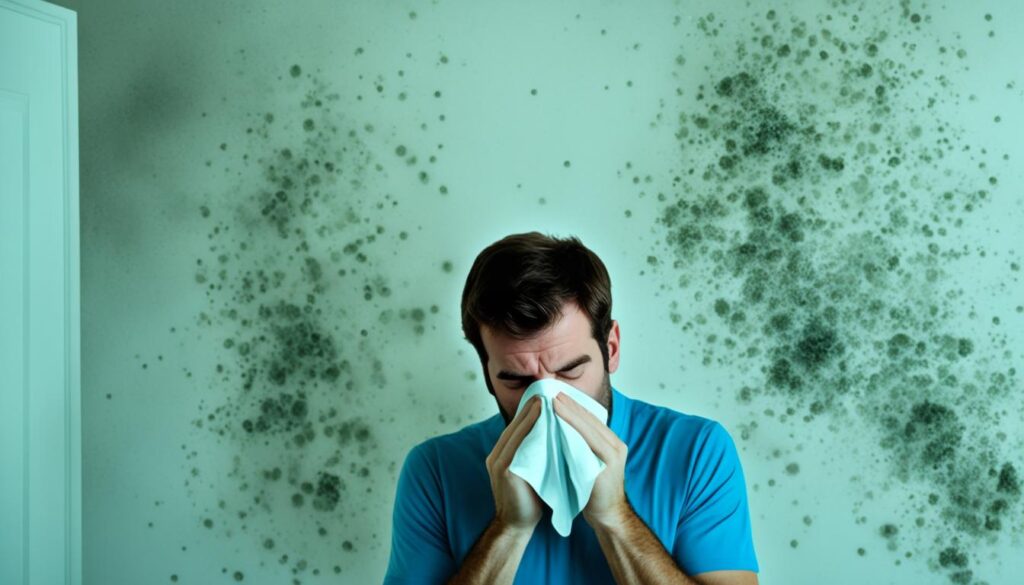
Mold Exposure Symptoms in Florida Residents
Living in Florida comes with many benefits, but it also presents unique challenges. The warm and humid climate creates the perfect conditions for mold growth, which can have adverse effects on the health of Florida residents. In this section, we will explore the symptoms that individuals may experience as a result of mold exposure.
Mold exposure can lead to various symptoms, affecting different parts of the body. Respiratory symptoms are particularly common, with individuals experiencing coughing, wheezing, shortness of breath, and chest tightness. These symptoms can be especially problematic for those with pre-existing respiratory conditions, such as asthma.
Additionally, mold exposure can trigger allergic reactions in some individuals. Symptoms of mold allergies include sneezing, itching, runny nose, and watery eyes. In more severe cases, mold exposure may even lead to hives or asthma attacks. It is important for Florida residents to be aware of these allergic reactions and take necessary precautions to prevent mold exposure.
To minimize the risk of mold exposure and subsequent symptoms, there are several prevention tips that Florida residents should follow. Proper ventilation and air circulation in the home are crucial, as well as maintaining humidity levels below 50 percent. Promptly fixing any water leaks or moisture issues is essential, and regular cleaning and inspection of areas prone to mold growth, such as bathrooms and basements, is recommended.
Key Takeaways:
- Mold exposure in Florida can lead to various symptoms.
- Respiratory symptoms include coughing, wheezing, shortness of breath, and chest tightness.
- Allergic reactions to mold can cause sneezing, itching, runny nose, and watery eyes.
- Preventing mold exposure is crucial for maintaining a healthy living environment.
- Proper ventilation, humidity control, and timely repairs are key prevention measures.
Respiratory Symptoms from Mold Exposure
Mold spores can have a detrimental effect on the respiratory system, causing a range of symptoms in individuals exposed to mold. If you live in Florida, where mold is prevalent due to the warm and humid climate, it’s essential to be aware of the potential respiratory health issues associated with mold exposure.
Exposure to mold can result in various respiratory symptoms, which can be particularly troublesome for individuals with pre-existing respiratory conditions like asthma. These symptoms may include:
- Coughing: Persistent coughing can be a sign of respiratory irritation caused by mold exposure.
- Wheezing: Mold spores can trigger wheezing, making it difficult to breathe properly.
- Shortness of breath: Mold exposure can lead to a sense of breathlessness, making it challenging to take deep, satisfying breaths.
- Chest tightness: Mold-related respiratory symptoms may cause tightness or discomfort in the chest area.

To gain a better understanding of the impact of mold exposure on respiratory health, Dr. Amanda Thompson, a pulmonologist at Miami Respiratory Specialists, explains:
“When individuals are exposed to mold, the spores can irritate the airways, causing inflammation and triggering various respiratory symptoms. In susceptible individuals, such as those with asthma or other respiratory conditions, mold exposure can exacerbate their symptoms and lead to worsened lung function. It’s crucial for Florida residents to take steps to minimize mold growth and reduce their risk of exposure to protect their respiratory health.”
If you experience any of these respiratory symptoms and suspect mold exposure in your environment, it is important to seek medical advice to determine the cause of your symptoms and receive appropriate treatment.
Allergic Reactions to Mold in Florida
Exposure to mold can cause allergic reactions in certain individuals, particularly those with sensitivities or allergies. If you are a Florida resident, it is important to be aware of the potential allergic reactions that can occur from mold exposure.
Common symptoms of mold allergies include:
- Sneezing: Mold can irritate the nasal passages, leading to frequent sneezing.
- Itching: Allergic reactions to mold may cause itching, particularly in the eyes, nose, and throat.
- Runny Nose: Mold exposure can result in excessive mucus production, leading to a runny nose.
- Watery Eyes: Mold allergies can cause eyes to become watery and irritated.
In more severe cases, mold exposure may trigger hives or even an asthma attack. These reactions can be distressing and may require medical attention.
“Allergic reactions to mold can vary in severity and duration,” says Dr. Emily Johnson, an allergist at the Florida Allergy Center. “It is crucial for Florida residents to recognize the symptoms and take necessary precautions to avoid mold exposure.”
Preventing Mold Allergies in Florida
To minimize the risk of allergic reactions to mold, follow these preventive measures:
- Reduce Moisture: Keep your home’s humidity levels below 50 percent. Use dehumidifiers if necessary to control moisture levels.
- Ventilate Properly: Ensure proper ventilation throughout your home, especially in areas prone to moisture, such as bathrooms and kitchens.
- Fix Water Leaks: Promptly repair any water leaks, as persistent moisture can lead to mold growth.
- Clean Regularly: Regularly clean and sanitize areas where mold is commonly found, such as bathrooms, basements, and crawl spaces.
By implementing these preventive measures, you can significantly reduce your risk of mold allergies and create a healthier living environment in Florida.

“Taking proactive steps to prevent mold growth is essential for individuals with known mold allergies,” advises Dr. Johnson. “By maintaining a clean, dry environment, you can safeguard your health and minimize the risk of allergic reactions.”
Prevention Tips for Mold Exposure in Florida
Mold exposure can pose serious health risks, so it’s essential for Florida residents to take proactive measures to prevent its growth. By following these prevention tips, you can minimize the risk of mold exposure and protect the well-being of you and your family.
Maintain proper ventilation and air circulation in your home: Ensure that your home is well-ventilated to prevent moisture buildup. Use exhaust fans in bathrooms and kitchens, and open windows when weather permits to encourage air circulation.
Keep humidity levels below 50 percent: High humidity creates a favorable environment for mold growth. Use dehumidifiers in damp areas, such as basements or closets, and consider investing in an HVAC system with built-in humidity control.
Fix any water leaks or moisture issues promptly: Moisture is the primary catalyst for mold growth. Regularly inspect your home for any leaks and address them immediately. Repairing water damage and drying affected areas within 24-48 hours can help prevent mold from taking hold.
Regularly clean and inspect areas prone to mold growth: Pay special attention to areas where mold commonly thrives, such as bathrooms, basements, and kitchens. Clean these areas regularly using mold-resistant cleaners and solutions. Additionally, check for any signs of mold growth, such as discoloration or musty odors, and address them promptly.
By implementing these prevention measures, Florida residents can significantly reduce the chances of mold exposure and the associated health risks. Remember, prevention is key in ensuring a healthy living environment for you and your loved ones.




